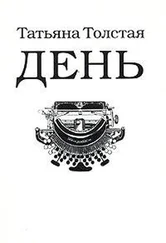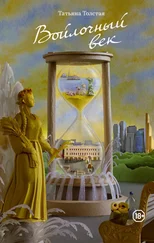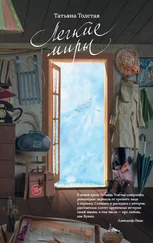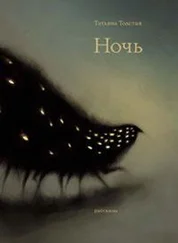“No patio,” repeated David ruefully. “Right here is where it should have been built.”
Like a true fucking lunatic, David had begun building his Garden of Eden before making a budget. And so this absurd, wonderful addition, this airy, translucent box promising entry into an aetherial world, was stuck in our terrestrial one, weighty and stifling.
“But it can still be built!” he said. “All you need to do is to apply for a permit at our local municipal building; they’ll grant it.”
“And why are you selling, if I may ask?” I asked.
“I want to buy a ranch and ride horses,” said David, lowering his gaze. Behind us Barbara began to weep quietly, stifling her sobs, and by the time we reentered the dimly lit house, she had already pulled herself together.
“I’ll take it,” I said. “It suits me fine.”
And now, once I imprint this American document with my illegible scribble, an entire acre of the U.S. of A. will become my personal property.
It was 1992 and time was flowing by—just whirling, raging past—as I had recently moved here from Russia, where everything had fallen apart, where the rug had been pulled out from under us, where it was impossible to tell what belonged to whom, and where nothing belonged to me. But here, in the New World, I could buy a green rectangle of dependable land and own it in a way that I’d never owned anything before. And if somebody dared to break in, I’d have the right to shoot them. Although I should probably look up the Constitutional rights of thieves and robbers first.
So David and I came to an agreement that I would definitely be buying his house. We even sat down to have a celebratory drink, trying not to pay any mind to Barbara weeping alternately in the bedroom and in the backyard. David told me that the house’s original owners were a childless African-American couple, and that all the flowers—he encircled the fading, autumnal yard with his hand—all these flowers had been planted by the wife; what the husband did, no one knew. “She had a real green thumb, as you’ll see later, when spring comes—you will see it all.”
The sale dragged on through the entire summer: first the college had to confirm my future employment, then the bank had to approve my future salary and calculate what mortgage terms I qualified for, then the lawyers had to figure out David and Barbara’s divorce and the distribution of proceeds from the sale of the house—there were a lot of bureaucratic steps, by which time the summer had passed, the foliage had wilted, the house was left sitting dark and cheerless.
We figured out all the terms ourselves and even became friendly—Barbara no longer bothered keeping up appearances; she’d walk around the house hunched over, eyes red and face puffy, her arms dangling limply, resigned to her fate and awaiting the inevitable. David had already showed me all his manly treasures, which he kept in the garage: jack planes, chisels, screwdrivers, and drills. Men like to show these instruments to women, and women like to pretend that these instruments are absolutely fascinating. He even took down his grandfather’s sled from the wall. His grandpa had used it back in the 1920s, as a rosy-cheeked, chubby five year old; when he started school—a mile and a half on foot in the freezing snow—his mother would get up before dawn to bake him two potatoes, one for each pocket, to warm his hands during his long, unaccompanied journey. David gave me the sled as a gift and I didn’t know what to do with it. He also gave me his proposed alteration plans, which he no longer had any use for—a whole binder of them on tracing paper, one more fantastical than the other: here is the house, all in ruin, and here it is growing wings on either side; here is a loft with an oval window taking flight above it; here are terraces encircling it like ruffles. In short, David poisoned me, lured me, entrapped me; he sold me his dreams, his fantasies, his ship in the sky with no passengers and an invisible captain.
Meanwhile, I was renting an expensive and no-longer-necessary apartment, where I kept all my belongings, accumulated during my three years here. Our stuff wasn’t anything special, but a family of four does acquire quite a few earthly possessions: earthly suitcases, earthly dishes, and earthly clothes, not to mention our earthly table and our four chairs, which were the earthliest of all. I asked David if I could keep all this crap in the house—David’s house, but mine, too, in a way—perhaps shoving it all in the basement. David didn’t mind. But, just in case, he consulted his attorney, who immediately reacted, restricted, and rejected the idea: the storing of my things in this yet-to-be-purchased house would create, under the laws of New Jersey, some sort of tricky loophole, the victim of which would be David, since I would thereby have the right to simply take his house without paying, or otherwise rob, bind, and deprive him, the owner.
No, we couldn’t do that, and so I watched in dismay as the last of my savings were depleted—I guess I won’t be fixing the roof this year, or putting in a new bathtub to replace David’s old trough. Wouldn’t have enough for a lawn mower, either, which I knew was a must here, but at least the linoleum—that I could afford, as I’d be installing it myself, and not buying it as a single piece but in those dirt-cheap squares instead. The black-and-white ones, just as in the painting of Nikolai Ge’s, wherein Tsar Peter interrogates the Tsarevich Alexei.
—
Looking out the window once again, I saw that the waters had already roiled up to my car doors, and that if I didn’t sign right now I wouldn’t have anything to drive away in. And so I bit the bullet. The house became mine, and I—its.
All the participants, who either received or parted with their money, experienced their complicated and contradictory emotions and went their separate ways: David disappeared into the wall of rain, conveyed by his pickup truck; Barbara glided off into the waterfall of her unhidden tears, and my family, we made our way toward our new home, unsure whether it was still standing.
It was completely empty, naked, and old. The floors were drab and worn, the windows swathed from the outside in dark spruce branches. I don’t like pine trees—to me they feel like the trees of the dead. Blue pine trees are the worst; they are the color of a Soviet general’s uniform, and so they plant them where those high-status corpses lie. Our neighbor had one such pine. And so I was forced to look at it, see.
Brown spiderwebs were already dangling under the ceiling, in the corners. The agile American spider produces a high-quality web overnight, and since Barbara had long stopped taking care of the house, the accumulated layers of web could easily support the weight of small household items, if somebody decided to place them there for some reason, as if in a hammock. My boys gloomily inspected their dimly lit cubbyholes, unpacked their computers, and proceeded to stare at their screens.
The magical room was also sad and cold. And its glass doors opened onto nothingness.
I alone loved this house.
§
Spring in the states, on the East Coast, is basically crazy. Overnight, everything that just yesterday stuck out its dead branches is resurrected. Cherry blossoms adorn the green lawns like pink fountains, forsythia bushes are sprinkled with yellow flowers without a single green leaf—the leaves come later. And the pear trees—my God, I can’t take such beauty! By the time the magnolias begin to bloom it’s already too much—a simple heart does not require such splendor. Flowers should be crumpled, torn, and ragged, like peonies, for instance.
The original owner—the African-American lady about whom I know nothing—had, as promised, truly planted the entire property with flowers. Along the walkway from the street to the front door was a long row of irises. Under the tree they call “catalpa” she had a small rose garden: it had grown wild, and when I ripped out the gigantic American weeds and cut down the monstrous American thorny bushes—spirals with spikes that could easily have served to secure the perimeter of a gated property—I discovered lovely white roses, surprisingly fragrant considering that in America flowers usually have no scent, vegetables no taste, and that, generally, smells of any kind are culturally unacceptable.
Читать дальше






